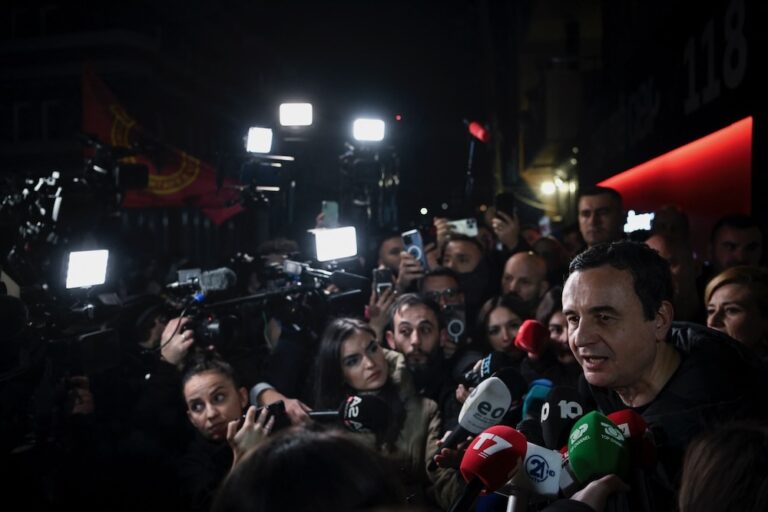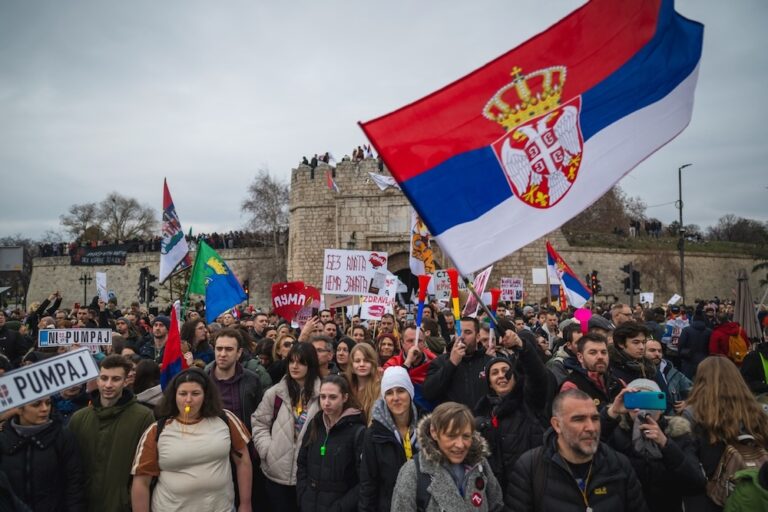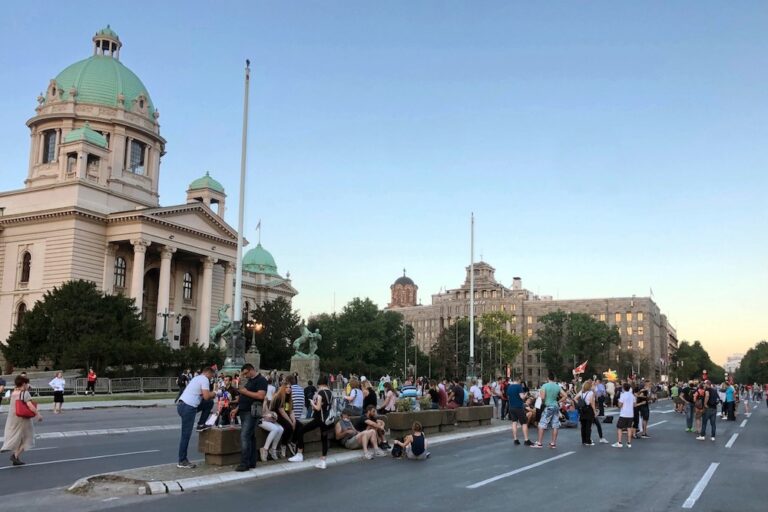(IFJ/IFEX) – The following is an IFJ press release: **Updates IFEX alerts of 22 April, 21 April, 13 April, 12 April and 9 April 1999** Media Release April 23rd 1999 IFJ Condemns NATO Bombing of Media: A Broken Promise That Threatens the Lives of all Journalists and Media Staff The International Federation of Journalists today […]
(IFJ/IFEX) – The following is an IFJ press release:
**Updates IFEX alerts of 22 April, 21 April, 13 April, 12 April and 9 April
1999**
Media Release April 23rd 1999
IFJ Condemns NATO Bombing of Media: A Broken Promise That Threatens the
Lives of all Journalists and Media Staff
The International Federation of Journalists today condemned the NATO bombing
of Serbian state television and warned that the action could lead to
reprisals against independent journalists and media staff who have been
campaigning against media distortion and control of information by the
Milosevic regime.
“Hundreds of reporters, writers and broadcasting staff opposed to government
manipulation of media are put at risk by this bombing. Killing journalists
and media staff never wins wars or builds democracy, it only reinforces
ignorance, censorship and fear,” said Aidan White, IFJ General Secretary.
The IFJ condemned NATO’s action in particular as a “broken promise”
following a written commitment from NATO spokesman Jamie Shea ten days ago
to avoid civilian casualties, including journalists. NATO told the IFJ there
was no policy to strike television and radio transmitters as such. The IFJ
further wrote to Javier Solana two days ago calling on NATO to stick to its
promise not to target media after attacks on media close to the Milosevic
family. This appeal was supported by more than 20 freedom of expression
groups world-wide.
“NATO’s action severely compromises the fight for freedom of the press and
free expression not just in Europe, but world-wide. Governments who attack
media – whether in the Balkans, in central Africa or central Asia – will now
feel justified in making journalists and all who work with them legitimate
targets,” said Aidan White.
The IFJ has been among the strongest critics of Slobodan Milosevic and his
government over the years and has worked with many other organisations to
support independent media organisations and independent journalists’ groups.
“What we need now is solidarity with those fighting for democracy in media,
not reckless military action which will be turned against those fighting for
press freedom.”
The IFJ also warned that the latest action put at risk a number of
individuals from media who are in detention. “We have been trying to trace
journalists who have gone missing or been detained by the Serb and Yugoslav
authorities. Their plight is made ever more perilous by this latest strike.”
The IFJ has prepared a Media Solidarity Programme for the region to support
journalists and media staff in the region, including displaced Kosovar
journalists. The IFJ says that the need for the programme is more urgent
than ever.
The IFJ is the world’s largest organisation of journalists with more than
450,000 members in 100 countries.


